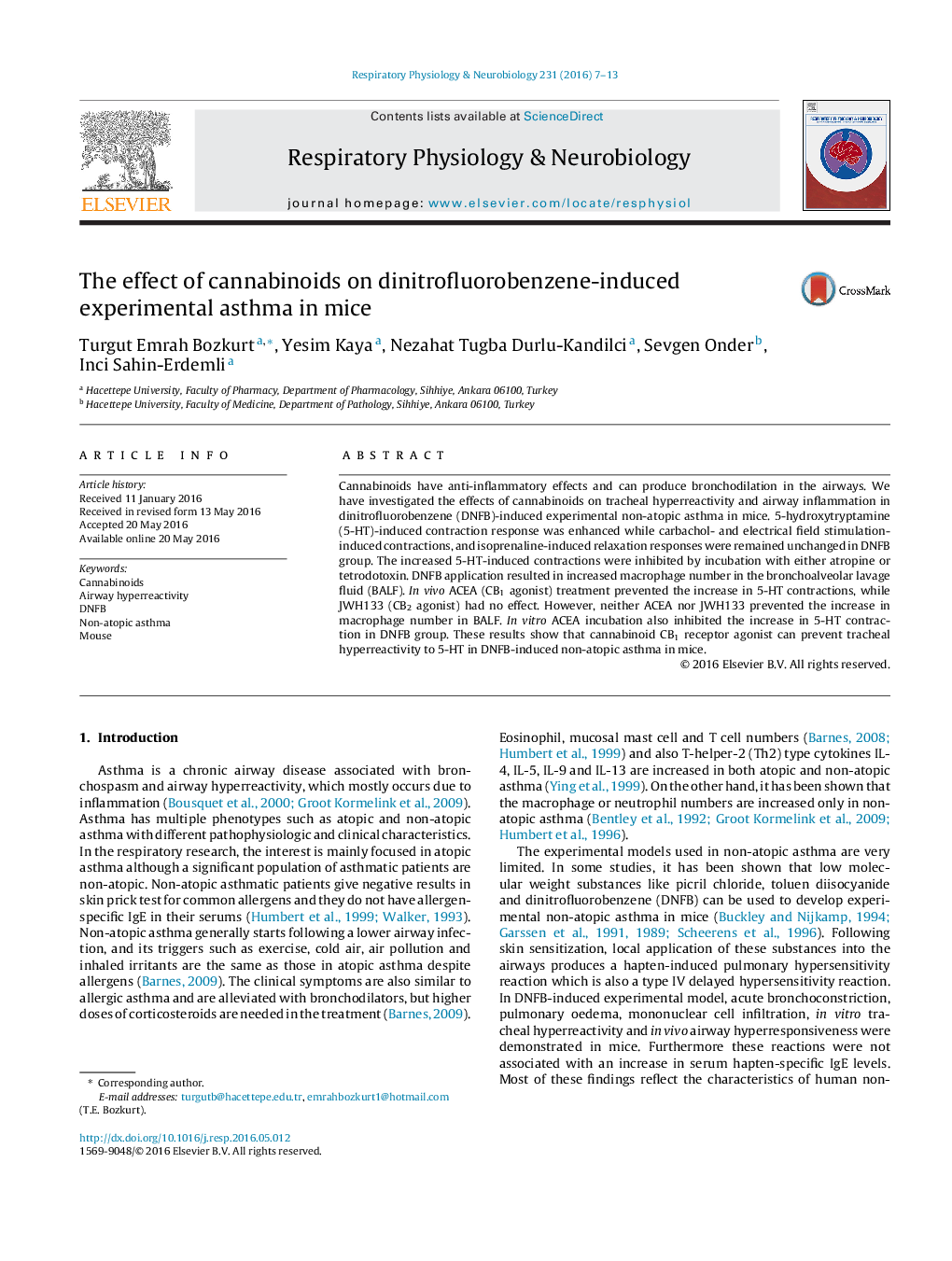| کد مقاله | کد نشریه | سال انتشار | مقاله انگلیسی | نسخه تمام متن |
|---|---|---|---|---|
| 2846634 | 1571299 | 2016 | 7 صفحه PDF | دانلود رایگان |
• There is limited data about the effects of cannabinoids in airway inflammation.
• CB1 receptor stimulation inhibits cholinergic acetylcholine release in the airways.
• CB1 agonists can prevent airway hyperreactivity in non-atopic asthma.
Cannabinoids have anti-inflammatory effects and can produce bronchodilation in the airways. We have investigated the effects of cannabinoids on tracheal hyperreactivity and airway inflammation in dinitrofluorobenzene (DNFB)-induced experimental non-atopic asthma in mice. 5-hydroxytryptamine (5-HT)-induced contraction response was enhanced while carbachol- and electrical field stimulation-induced contractions, and isoprenaline-induced relaxation responses were remained unchanged in DNFB group. The increased 5-HT-induced contractions were inhibited by incubation with either atropine or tetrodotoxin. DNFB application resulted in increased macrophage number in the bronchoalveolar lavage fluid (BALF). In vivo ACEA (CB1 agonist) treatment prevented the increase in 5-HT contractions, while JWH133 (CB2 agonist) had no effect. However, neither ACEA nor JWH133 prevented the increase in macrophage number in BALF. In vitro ACEA incubation also inhibited the increase in 5-HT contraction in DNFB group. These results show that cannabinoid CB1 receptor agonist can prevent tracheal hyperreactivity to 5-HT in DNFB-induced non-atopic asthma in mice.
Journal: Respiratory Physiology & Neurobiology - Volume 231, September 2016, Pages 7–13
